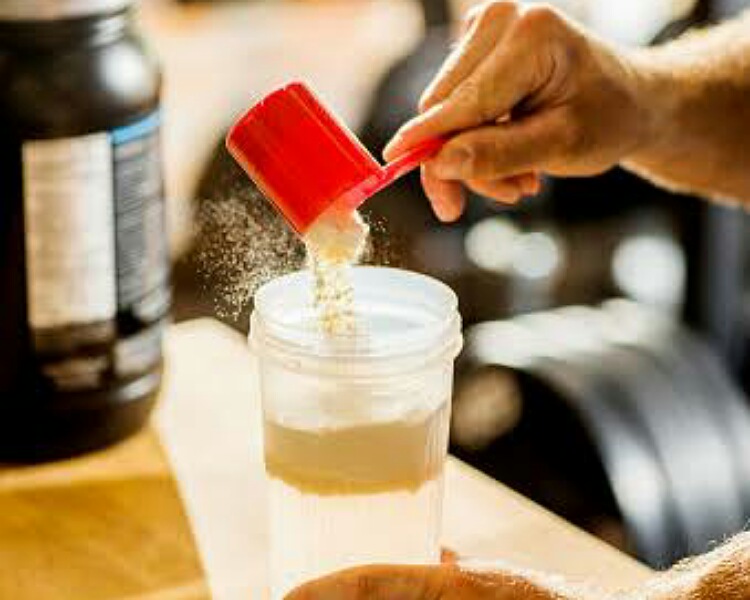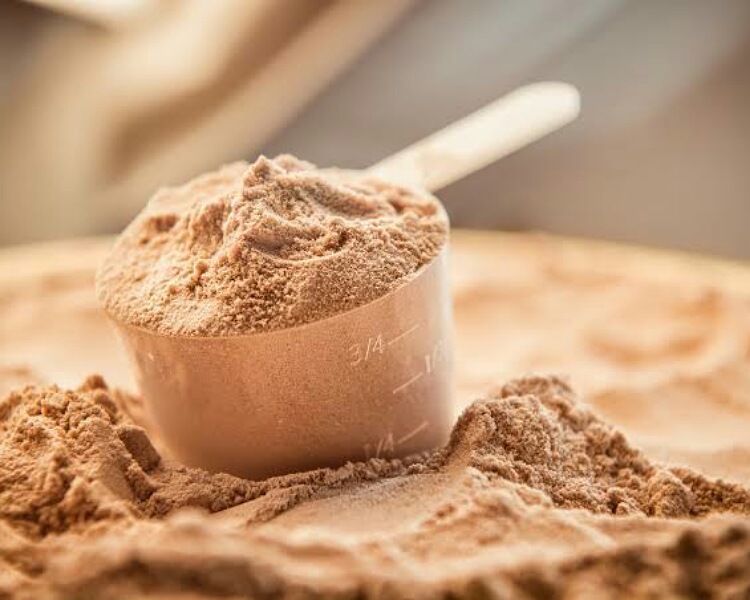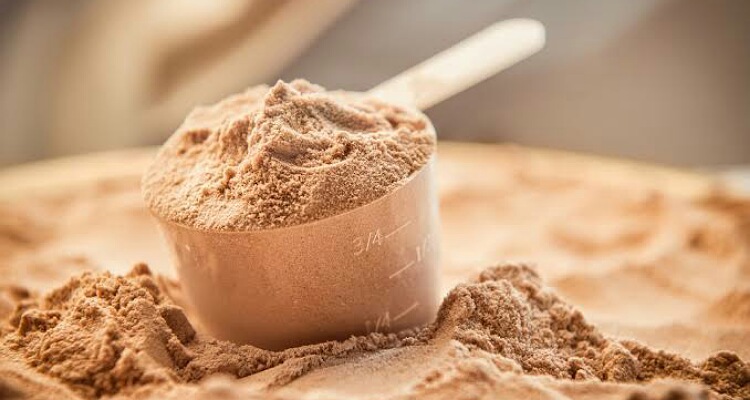Whey protein is increasingly incorporated these days in the making of protein bars and healthy shakes. What exactly is whey protein?
Is it healthy to have it? What are the cons of consuming it?
What is Whey protein?
Milk has a variety of proteins in it. The main protein is casein and then there is whey protein.
The latter protein is a group of 8 proteins that are Alpha-lactalbumin, Beta-lactoglobulin, Immunoglobulins, Lactoferrin, Lysozyme, Lactoperoxidase, Bovine serum albumin, and Glycomacropeptide.
In the making of cheese, manufacturers add a substance to the warm milk. This ingredient curdles the milk. The solid curd that separates has most of the milk fats in it. This is the cheese.
When this is removed the liquid that remains behind is whey. It has the above 8 proteins in it. This is whey protein. It also has milk sugar called lactose and some fat in it.

Manufacturers pasteurize this whey to kill pathogens. They then dry it to a powder form to make a protein-enriched food item.
Types of whey protein-containing products
This protein is further processed and yields the following three types of food products:
1. Concentrate: This type of food made from whey has varying amounts of protein, fats, and lactose in it. This is mainly used to make protein bars, drinks, and such nutrition-packed formulas.
2. Isolate: This processed product has a high content of proteins. But the fat and lactose content in it is low. It forms part of protein supplement products.
It is good for people with lactose intolerance. But if a person has a milk allergy, do not consume this product.

3. Hydrolysate: In this, the proteins are in hydrolyzed form. This means that the long-chain peptides are broken down into smaller chains. This makes the food easier to digest.
It is gentle on the stomach and hence infant formulas incorporate this form of the protein obtained from whey. It forms a component of medically prescribed protein supplements.
Maxine Smith, dietitian talks about this protein benefits
Whey has proteins that contain all 9 essential amino acids. Registered nutritionist, Maxine Smith states:
“Amino acids are important for many functions in the body, from building muscle to creating new immune cells,”
Your body does not make the essential amino acids. They come from foods and whey-manufactured foods are rich in them. These help in building and repairing muscles. Maxine adds:
“Whey protein contains branched-chain amino acids, a specific type of amino acid that helps with muscle building,”

They speed up wound healing after injury or surgery. It is good after a long-drawn illness. Maxine opines:
“If you can’t get enough protein from whole food sources, a whey protein supplement can help,”
“It’s beneficial for people who have chewing or swallowing disorders or a lack of appetite.”
It helps gain weight. It does have drawbacks. People with milk allergies cannot take it. Its caloric content is less. Maxine elaborates:
“Too many calories from anything, including protein, leads to weight gain,”
The foods containing whey have additives such as artificial flavors, sweeteners, or added sugar. Hence Maxine advises:
“It’s better to get your protein from whole foods and a varied diet, rather than a supplement, bar or shake,”
“If you use a supplement, look for one that lists whey protein as the only ingredient.”
They can be potentially unsafe if they have some contaminants:
“They can have fillers or heavy metal contaminants that aren’t listed on the label.”
Read here on Lemon detox diet: Everything you need to know about this unscientific food fad!
Some individuals get digestive issues such as nausea, loose motions, or constipation after consumption of the products.
